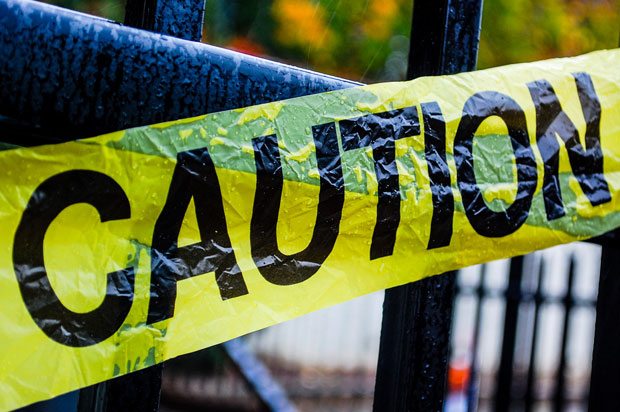UK Arrest Rights explained

Although the police are there to protect us, when you’re on the receiving end of the law it’s important to know where you stand to make sure you’re being treated fairly. UK arrest rights lay out exactly how you should be treated if you’ve been taken into custody by the police. Read on to learn more about your rights when arrested.
Being arrested means that – for the time being – you lose certain freedoms. Such as ‘go and do as you please’. But in return you’re given certain rights which protect you against unreasonable treatment.
Your rights when arrested
In the UK, you have rights from the moment you’re arrested. The first is the right to know why you’ve been arrested. It’s likely you’ll be taken to the nearest police station next. When you arrive, the police must also give you written information about your legal rights.
If you’ve been stopped and searched, read more about your stop and search rights.
What do police say when they arrest you?
Typically when you’re being arrested the police will say what they are arresting you for and inform you of your right to remain silent.
Although your rights on arrest include the right to remain silent, you do still have to confirm your name and address – giving false information counts as a separate offence on top of what you’re already being arrested for, so it’s best not to do this.
Your rights at the police station
At the police station you are entitled to:
- See a solicitor free of charge.
- Use of an interpreter, if needed.
- Have someone told where you are, although you may not be allowed to make this call yourself. If you need to contact your parent, guardian or carer the police can do this for you. See our article on who you can call after being arrested for more info.
- Have medical help if you feel sick or are injured.
- Read a copy of the Codes of Practice, which explains the procedures the police should follow.
- Be given a written note of these rights, which explain things like toilet breaks, etc.
The police should explain this to you but it’s worth noting that these things aren’t always given to you automatically, you’re expected to ask for them if you need them. You can be searched at any time if the police choose to do so and you don’t have the right to stop them from doing this.
How long can the police keep me at a police station?
You can only be held in custody by the police if they don’t have enough evidence to charge you but believe they can obtain further evidence by keeping you in.
You cannot normally be held for more than 24 hours without being charged or released.
If they think you’ve committed a really serious offence, a senior police officer can authorise your detention for a further 12 hours. This can be extended to a total of 96 hours, but only with the approval of a magistrates’ court.
If you believe the police have not followed the correct procedure, learn about making a complaint against the police here.
What’s police questioning like?
If you’re under 17, you need a parent or guardian or ‘appropriate adult’ with you before you’re interviewed by police.
You must give the police your name and address, but you have the right to stay silent after that. If you don’t talk and the case goes to trial, the court will be told of this and your failure to answer questions may strengthen the case against you.
There are clear rules the police must follow. You should be given regular breaks for food, the cell and interview room should be clean and properly heated, and the police should not follow a line of questioning which puts unreasonable pressure on the suspect. Someone who is deaf or can’t speak English should be given a signer or an interpreter.
Can I get legal advice?
Whether you are arrested or go to a police station voluntarily, you are entitled to free legal advice from a solicitor. If you have been arrested or are being questioned about a serious offence, or if you feel at all unsure about your legal position, it’s better not to answer questions (except your name and address) until you have had a chance to speak to the solicitor.
Recording your interview
Your interview at the police station will probably be recorded. It will begin with questions about your name and address before moving on to more serious matters.
If your interview is not recorded, notes should be made by the officer concerned. You should have the opportunity to see these notes and to sign them if you agree they are a fair record of what was said.
Fingerprints and photographs
The police can take your fingerprints, photographs of you, and a DNA sample like a mouth swab. You cannot refuse to let them do this.
Your fingerprints and DNA samples can be kept on the police database, even if you’re released without charge later.
Police may want to take ‘intimate samples’ such as a blood or urine sample, but can only do so if they have your permission and the authority of a senior officer.
What does a charge sheet contain?
If you are charged with an offence, you are given something called a charge sheet. This is a summary of all the key facts relating to your arrest. It contains details of the offence, when and where you are due to appear in court, and the conditions of your bail.
Once you are charged you should not usually be asked any further questions unless new information has come to light.
Read more about going to court.
What does bail mean?
If you are charged with an offence, you should normally be released on bail. Although bail can be refused if the offence is very serious, or police don’t trust you to turn up to court if released.
If the police do not release you, you must be brought before a magistrate, at the earliest opportunity, who will decide whether you can be released on bail, and if so, what conditions should apply. Read more about crown and magistrates court procedure.
Chat about being arrested on our discussion boards.
Next Steps
- Chat about this subject on our Discussion Boards.
By Holly Turner
Updated on 03-May-2023
No featured article













